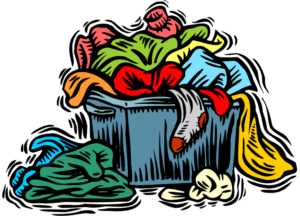The day has finally come. You arrive home from the therapist’s office to whom you and your child were referred to by the school. The diagnosis explains the challenges he has in class and with keeping up. You now have a label. Doctor’s names, medications, treatments, and therapies are spinning in your mind. In a way, this label makes sense; it gives you something with which to work with. In another way you want to shrug it off as over-examining a creative, energetic child. You have a foreboding sense of no return.
Solutions to either overcome the issue or control the symptoms so that they do not impact major life functions become your top priority.
Gather information about the diagnosis. Knowledge is power. The more you understand the situation the better prepared you will be. You’ll ask better questions and identify the best services for your loved one.
Seek support services for your loved one. Make a list of agencies that provide support to individuals and families impacted by the particular diagnosis. Does the support include family members as well as the child? Are there tutors, therapists, and organizers who specialize in this area? Does Supplemental Security Income play a part? Is the child eligible for Medicaid? Primary and/or secondary insurance may be important if there’s a medical component to the issue.
Create an organized structure to maintain information. For instance, I love using the phone app any.do to track tasks, calls, errands, and projects. All lists can be easily shared with anyone you choose, and reminders can be linked with your calendar. Evernote is extremely useful for organizing notes and records. For example, I’ve created a “notebook” for a loved one whom I’m helping to navigate the healthcare system. Within his Evernote “notebook,” individual “notes” have been set up for each doctor to track visits and medications prescribed. Another “note” can be added each time we visit a particular doctor. A parallel filing structure has been created for any paper records that need to be kept for the purposes of benefits and possible questions or disputes.
Self care is as important as advocating for your loved one. This is hard for all caregivers, especially moms. However, the common anecdotes are true. You are no good to anyone if you’re depleted. Even brief periods of relaxation can be restorative. A few minutes of meditation, exercise, coffee, a phone conversation with a friend, or a lunch date can do a world of good. Healthful meals and good sleeping habits must be prioritized when under stress. I’ve heard some say that time away feels like time or money that should go to their child (or loved one). Please consider this, if you’re frazzled and on edge your children will pick up on it and may not understand your stress. Consider hiring a babysitter, taking turns with your spouse or a sibling for a little time off, ask a grandparent, or a trusted friend for help.
Most importantly, remember differences don’t need to be viewed from a glass in half-full position. In fact, the more we know about different disabilities, the more we know about their hidden blessings. Many people with differences have hidden talents (depending on the disability) surpassing the typical personal: creativity, an ability to recognize detail, sheer honesty, an indisputable sense of right and wrong, a great ability to focus for long periods of time, very high IQs, exceptional memory, unconditional love, dedication … I could go on and on. Back when I was in school, there was a focus on improving student deficits. Now, finally, thinking has come around to concentrating on and developing student talents. I hope it’s a bright age for those with differences and that we can learn from each other.
Meanwhile, gather information, seek support services, stay organized, and don’t forget to take care of yourself. I’m cheering for you!
Finding the time and energy to garden has been a challenge for me in the past few years. Our property seems to be getting bigger or am I getting older? Regardless of the reason, I’m not willing to give up the great exercise and satisfaction I get from planting my garden, so I need to get more organized to get it done. I also have to be satisfied with an hour or two here and there instead of a full day of gardening. After I planted my garden last year, I took pictures of the planters and the gardens and made a list of the plants I bought at the local nurseries. Next year, it will be much easier to start the process!
Our garden shed was built on top of an old outhouse and frankly it could withstand a hurricane. It has a waist high counter and wooden shelving. We used leftover linoleum flooring from the kitchen for the floor. Mice and other critters frequently visit the shed in the winter, so I need to be mindful of how I store items.
My garden shed is just the right size to hold the following:
In the spring:
In the fall after the first killing frost:
After plants have been hit by frost, I like to fill in with fall décor so it doesn’t look so empty. I use some of the more colorful pots I emptied and place them upside down to hold mums. I fill in with straw bales, pumpkins, cornstalks and gourds. Organize your gardening so it’s a pleasure, not a chore.

5 5 Steps To Organizing Your Family’s Summer Calendar
1. Print a three month calendar for June, July & August. Click this link to see if this one might work for you: http://www.crayonfreckles.com/2017/05/25-summer-activities-and-free-printable.html
2. Add holidays, birthdays, party invitations and vacation days. You can attach any information about these events to the back of the calendar.
3. Add any camps your children are signed up for.
4. Cherish the downtime. The lazy days of summer are important so be sure to cherish the downtime! Leave them blank for spontaneous fun.
5. However, if you feel incline you can create a loose timeline for the downtime. For instance:
▪ 9:00am wake- eat breakfast, wash-up, make your bed
▪ Noon- have lunch, swim, play
▪ 3:00pm- snack, read, rest
▪ 5:00pm- help with dinner prep
▪ 7:00pm- family time
The NAPO National Conference was held in Pittsburgh, PA this year, and I was fortunate enough to attend. While there, I couldn’t help but reflect on how grateful I was to have the opportunity to travel with my colleagues and learn from some of the best! My motto is to always have an ‘attitude of gratitude,’ and below are a few of my ‘takeaway’ gifts.
The first gift I received was back in December 2016 at our NAPO-GPC holiday party when I was chosen as the recipient of the NAPO-GPC scholarship. This scholarship enables one qualifying member to attend the conference. Most don’t realize that although I had sent in payment, early on, to reserve my spot, I had been debating on pulling out of going due to other family commitments. Upon the advice of my friend and colleague, she suggested that I wait until after our holiday gathering to make my decision. I am so grateful that I took her advice!
The second gift I received was the undisputed educational opportunity to grow personally and professionally. The keynote speaker was Jones Loflin, and he presented “How To Blossom Even In Times Of Change.” He spoke about the need to cultivate, prune, and accept change. He also spoke to us about the ability to harvest even in times of change. I walked away from his address with a newfound appreciation for growth, and I am looking forward to implementing his examples and expertise. I had the opportunity to choose from many ‘breakout sessions’ and a few of my favorites were the TED Talk Discussion – ‘Inside the Mind of a Master Procrastinator’ facilitated by our very own Debbie Lilliard, ‘How to Get and Keep Media Attention’ by Paula Rizzo and Terri Trespicio (the dynamic duo), ‘Busily Unproductive’ by Zachary Sexton, and ‘9 Technology Tools to Skyrocket Productivity’ by Amy Payne and Brooks Duncan. Honestly, it was not an easy decision as there were well over 45 sessions to choose from.
Lastly, and most importantly, the greatest gift I received was the ever-present ‘collaboration over competition‘. I have always felt this with my local GPC chapter, but to experience this with well over 600 attendees was astounding. Our NAPO National motto has always been “together we are better,” and to be amongst my peers and feel their sincere desire to see me grow professionally and personally is the greatest gift by far.
 Looking for a way to shed a few pounds this summer? If you start with your home, you will gain more than weight loss benefits. Consider the excess weight that is in your home in the form of clutter. Clutter not only adds pounds, but drains your finances and takes a toll on you and your family – physically, mentally and emotionally.
Looking for a way to shed a few pounds this summer? If you start with your home, you will gain more than weight loss benefits. Consider the excess weight that is in your home in the form of clutter. Clutter not only adds pounds, but drains your finances and takes a toll on you and your family – physically, mentally and emotionally.
Take a guess at the approximate weight of these items (answers below):
By taking time to de-clutter your home this summer, you will enjoy these benefits.
Physical
Mental & Emotional
Financial
Shed some weight in your home this summer and you might find that the space you create promotes healthy changes in other areas of your life.
Answers to above: 1) 30 pounds 2) 15 pounds 3) 17 pounds.
You’re driving to the grocery store, a trip you’ve made a thousand times. Out of nowhere comes a car running the red light at the intersection you’re crossing – heading straight toward you! Crash!! You’re hurt, stunned and quite possibly in shock.
The police and ambulance arrive. First they ask questions about the accident, most of which you can answer. Then they ask about medications you take, allergies and an emergency contact’s phone number. Your mind goes blank. You are taken to the hospital but you’re unable to give the ER doctors any information that could help them treat you.
Accidents can happen anywhere, anytime to anyone, especially as we’re getting into the busy travel season. What can you do?
Create an Emergency Card containing your critical information to keep with you at all times. Organize it in an easy-to-read format. My Emergency Card is set up in a multi-column format. I recommend it be typed using a plain font and printed on heavy paper or card stock.
However you organize your Emergency Card, start with Emergency Info For. Under that, put your full name and address.
Suggested column headings are:
For 3-6, make a list. For 7-9, include full name, phone number and address.
Add any information you think is important.
Make the card small enough to keep in your wallet with your health insurance ID card, driver’s license and car registration. If you plan to be an organ donor, be sure it’s noted on your driver’s license or have a signed Organ Donor Card. Don’t keep the information in your phone if your phone is locked because it cannot be accessed. However, if your phone is unlocked, put the info in Contacts labeled ICE (in case of emergency). First-responders should know to go to your wallet or phone for this information.
Having an Emergency Card could be a life-saver.